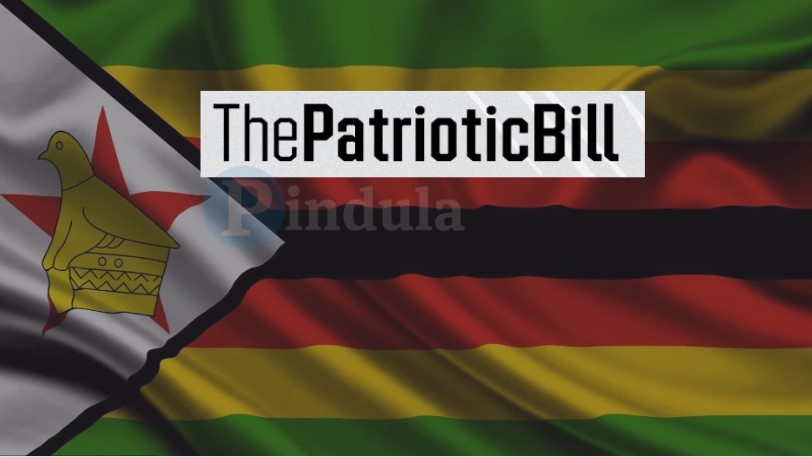Chantel Takudzwa Zambukira and Clive Thabo Dube
Zim GBC News Reporters
ZIMBABWE’S freedom of speech and association has became something to sneer at and is receding at a fast rate since the Second Republic came into being in 2017.
The Emnerson Mnangwagwa led Government takes advantage of its majority in parliament to pass bills favorable to the ruling party at the expense of the general populace.
The ruling party has now passed into law the Patriotic Bill which many forsee taking the country’s democracy down the road of perdition.
Zimbabwe’s system of governance pre and post independence has been extremely suffering from pervasive developmental disorder when it comes to democracy. Proposed statutory reforms in the country is consistently contradicting the constitution and international laws one way or the other.
The Bill which has now passed awaiting the President’s consent will not allow private correspondence or any other conduct aimed at undermining the country or government in power. This reveals how those in power take little regard for the fundamental human rights of freedom of speech and association.
The bill has many Human Rights groups and prominent figures worried of its nature.
According to the outspoken Independent Norton legislator, Hon. Temba Mliswa, the Patriotic Bill threatens to erode Zimbabwe’s democracy and allow the ruling party’s actions to go on unchecked.
“The bill will divide the people and will be more of a tool of ZANU-PF to silence people to show power, but you don’t show power by abusing the majority we have in Parliament by coming up with such bills.” Said Hon. Mliswa.
During the bill debate, the outspoken Member of Parliament was ousted out of the August house for mentioning the sensitive Gugurahundi massacre and questioned what power does ZANU- PF posses to determine who is patriotic or not.
“Lookout Masuku and Ndumiso Dabengwa were arrested after independence but they had also participated in liberating this country, were they not patriotic? Farms belonging to ZAPU were taken away and war veterans today are not being paid well, but they are the ones who liberated the country. Therefore, it is those in power who are unpatriotic and there is no need to bring law into it. What we need to do is to dealing with the current laws that are there to accommodate everybody. There must be a law that rather states that those in leadership must respects patriots and not punish them, give them what’s due to them. It is disharmony, lack of trust and power hungriness which is there from the ruling party forgetting that these laws will haunt them, whoever comes to power.” He added.
Award winning and renowned Journalist Hopewell Chin’ono through his Twitter handle said if the bill comes to existence, descending voices will be silenced. Having no say when it comes to holding government accountable in issues that undermine the progression of the country.
“The Patriotic Bill seeks to stop the opposition Government critics and journalists from exposing the political elites corruption under the guise of patriotism.”
In reality, Zimbabweans do not need laws for them to be patriotic, however the bill will be serving the personal gains of the ruling party so that people will not expose their bad deeds according to political commentators.
Political Commentator Methuseli Moyo said,
“Patriotism must come naturally, through socialization. I believe Zimbabweans are patriotic, and not need legislation to compel them. In that regard, the law is undesirable and detrimental to freedom of speech and association.”
In so far as the Ministry of Information Publicity and Broadcasting Services has been fighting for media diversity, the future of freedom of the media and access to information is bleak as this bill will tighten it’s freedom.
Another Political analyst Effie Ncube lamented the fact that the bill is unconstitutional.
“Certain provisions of the Patriotic Bill are going to make a very terrible law that will not be able to stand the test of constitutionality and democratic principles. Without any doubt, the proposed law is too wide, too vague, undemocratic and completely unnecessary. The crucial parts of the bill are vaguely worded, difficult to understand, and open to misinterpretation by law enforcement officials who are most likely to interpret them as broadly as possible and end up criminalizing all forms of meetings and free speech. Opposition and civic activists who meet foreign embassies even to discuss development and humanitarian aid may end up being arrested. In the circumstances, the desperately needed development and humanitarian support will be inhibited.”
He went on to elaborate the fact that the bill itself does not show any patriotism.
“Because of vagueness, proving the alleged offense will be too difficult for the prosecution leading to prolonged trials. Our constitutional jurisprudence requires that laws be framed in terms that are precise so that persons will know exactly which conduct is prohibited. The Patriotic Bill does not do so. Such a law has no place in a democratic society but is only for despots who want to cow and silence critical voices,” he added.
The Bill was first proposed in August 2020 and it was debated by the National Assembly in March 2021 to see it’s need but it was not clear as it showed the signs of disorder. The Bill is to amend the Criminal Law (Codification and Reform) Act.


